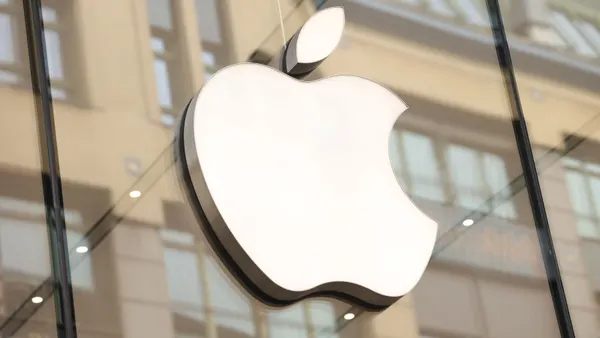Rodney Manzo is the CEO and founder of Anvyl. All opinions are the author’s own.
For retailers and consumer brands, the buzz of Black Friday and Cyber Monday is already in the air. Behind the excitement, however, is a palpable tension: a race against time, economic obstacles and supply chain chaos.
In the context of persistent global supply chain disruptions, changing geopolitical landscapes and volatile consumer behavior, Black Friday and Cyber Monday aren't just about overcoming challenges, it's about recognizing and capitalizing on opportunities. History shows that reactive brands consistently fall behind, while those that successfully embed proactivity into their supply chain management often emerge as frontrunners during this crucial period.
From where I stand, it's clear that brands have two choices this holiday season: sink or swim.
Why inventory planning is crucial
In the high-stakes world of Black Friday and Cyber Monday, a brand's strength is tested against the volatility and unpredictability of the market.
Changing consumer preferences are just the tip of the iceberg. Global challenges, from fluctuating exchange rates to intensifying trade tensions, add to the urgency for strategic foresight in inventory planning.
Considering this challenging environment, it's understandable why 83% of consumer brands are reevaluating their ordering strategies, according to an Anvyl survey. However, what I find alarming is that ahead of the holiday shopping season kickoff, only 33% of brands are beginning their inventory preparations as late as September.
This is not just a risky move, it's a decision that puts a company's hard-earned reputation on the line. A crunched timeline limits brands' ability to effectively negotiate with suppliers, process orders with agility and buffer against unforeseeable disruptions. Brands that initiate early preparations are not only being proactive but are also showcasing a sense of adaptability and resilience, essential traits in today's unpredictable commerce landscape. In contrast, the late starters aren't simply playing catch-up, they're also putting their brand's credibility and customer trust at risk.
How a brand prepares for Black Friday and Cyber Monday shows its strength and readiness to tackle market challenges.
How data can benefit inventory planning
Black Friday and Cyber Monday's success hinges on precise inventory planning for most brands. The ability to forecast inventory arrivals is pivotal, especially given the pressing timelines of the shopping days.
A substantial 65% of consumer brands aim to have their inventory ready two to four weeks in advance of these days, according to the Anvyl survey. In this e-commerce era marked by prompt deliveries, the importance of accurate stock availability cannot be understated.
The challenge, however, lies in the data. With 30% of consumer brands depending on supplier-provided insights, there's an inherent risk of inaccurate information.
Savvy brands are diversifying their data sources, striving for a comprehensive view of their supply chain. One notable shift is the elevated emphasis on purchase order management, transitioning from a secondary role to a core operational focus.
This underscores the vital need for efficient supply chain processes. Moreover, with the growing trend of transparent data sharing, brands and suppliers are fostering deeper and more optimized relationships.
Navigating supply chain complexities with AI
Navigating Black Friday and Cyber Monday is increasingly challenging due to global supply chain issues and shifting consumer habits. Traditional supply chain methods just won't cut it.
Luckily, more brands are turning to technology. Simply knowing about advanced tools like artificial intelligence forecasting or intelligent order management systems isn't enough. As BFCM approaches, brands need to fully embrace and effectively deploy these innovations.
To me, Black Friday and Cyber Monday are more than just a seasonal surge — it's a litmus test of a brand's adaptability and resilience in an ever-shifting landscape.
Brands that exhibit innovative supply chain solutions and proactive strategies don't merely succeed during this season — they redefine industry benchmarks and gear themselves for future success.














